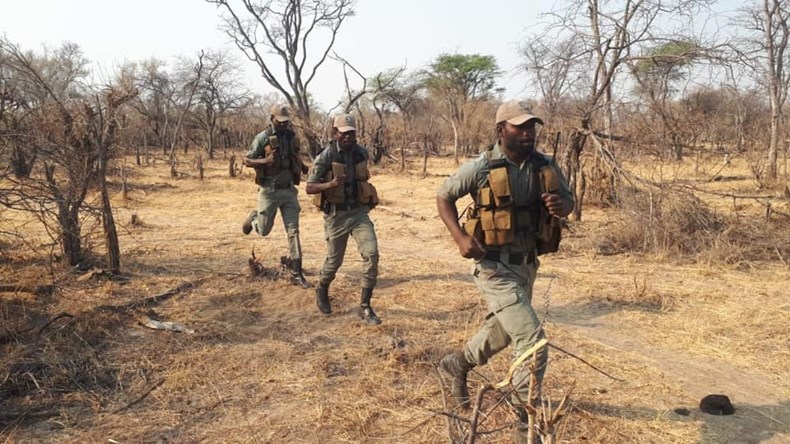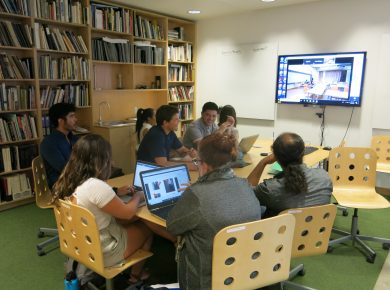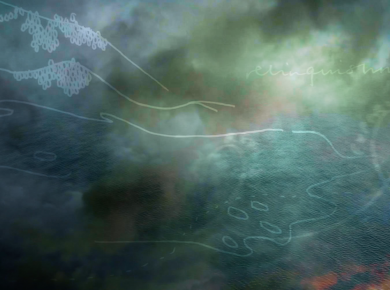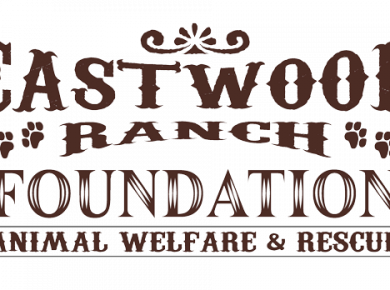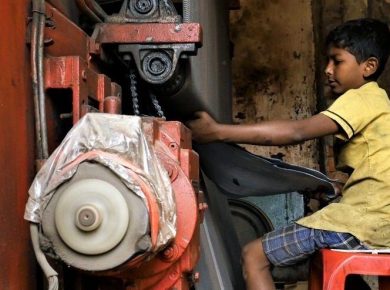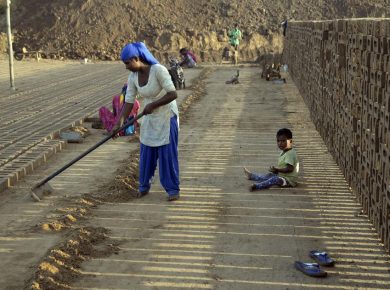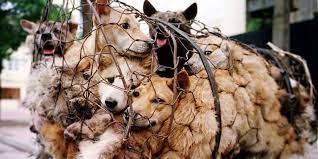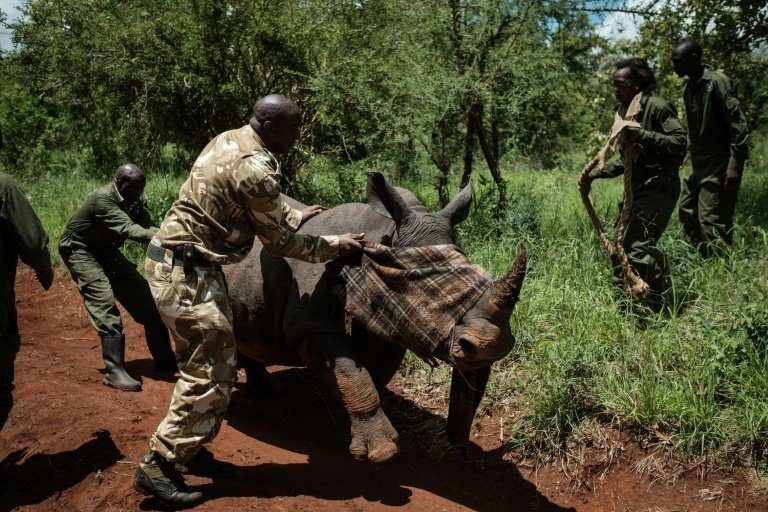
A ranger of Kenya Wildlife Services tries to calm down a female Southern white rhino after she was shot by a tranquilizer from a helicopter during an ear-notching exercise for identification at Meru National Park April 5, 2018.
Earlier this year, six rangers in Virunga National Park – one of the last refuges of the endangered mountain gorilla – were ambushed and killed by armed assailants, the second such attack in the park within the past year. The region – a World Heritage Site in the Democratic Republic of Congo (DRC) – has been plagued by violence and instability for decades. Rebel groups such as the Democratic Forces for the Liberation of Rwanda (FDLR) battle both government forces and each other, and are heavily involved in hunting for bushmeat, illegal fishing and logging, and poaching, especially of elephants, to fund their activities.
Since its inception, the International Gorilla Conservation Programme (IGCP) and park authorities in surrounding countries – DRC, Rwanda and Uganda – have been forced to work against this backdrop of conflict, human tragedy and economic hardship. In almost all cases, it is the wildlife and the rangers who battle to protect them who pay the highest price. “The rangers of Virunga National Park are the bravest of men and women,” said Flora and Fauna International’s Director of Operations for Africa, Alison Mollon. Based in Virunga from 2011-2014, she has seen the devastating effects of the conflict first hand.
“The conservation world is privileged to have them on our side because they knowingly put their lives on the line every day when they go to work,” she says, emphatically. “How fortunate we are that we don’t have to make that daily decision,” she continues. Fortunate, indeed. In the past ten years, 1,000 rangers have been killed, many of them by commercial poachers. “Rangers are the frontline of protecting much of this iconic wildlife,” said Rohit Singh, WWF’s Zero Poaching Lead, and president of the Ranger Federation of Asia, told phys.org, in 2018. “What is shocking is that – despite their willingness to bear these grave risks to save shared wildlife – few are receiving fair pay, insurance and adequate training.” In Asia, rangers earn the equivalent of $292 (250 euros) per month, on average, and in Central Africa the monthly pay check is typically $150.
The impact of a pandemic
And the onset of COVID-19 has made the circumstances in which they work far, far worse. As the murder of the Virunga rangers has shown, what was already a dangerous job has become lethal. The primary threat is, inevitably, funding – or loss of. “Countries have started cutting wildlife and conservation budgets to divert funding to support COVID-19 efforts and economic recovery and stimulus packages,” says Chris Galliers, President of the International Rangers Federation. “This results in a decreased wildlife service’s capacity to carry out important conservation functions. But the other concern is the longer-term effects. Many parks and conservation areas will see a complete drop-off in income, which could result in undesired consequences such as transformation of land for cropping to increase food production or even subsistence poaching.”
At the same time, the number of tourists, on which so many communities around conservation areas rely, has plummeted: “Many parks depend on revenues from tourism,” says Galliers. “Their lack is going to prove especially devastating, leading to ranger job losses,’ There is of course COVID-19 itself: “In some countries, rangers have reported people with COVID-19, using park facilities to quarantine,” says Galliers. But without, in many cases, necessary protective equipment, rangers have been at risk of the disease themselves; ranger casualties due to COVID-19 have been recorded since the outset of the outbreak.
And of course, animals are dying. Apart from creating income, tourist presence helps deter poachers, making their absence sorely felt by rangers and animals alike. The Uganda Wildlife Authority (UWA) recorded 367 poaching incidents in the parks between February and May 2020, more than double the number during the same period in 2019, Charles Tumwesigye, the agency’s deputy director of field operations, told National Geographic. Likewise, Botswana has reported an increase in rhino poaching, poachers in Nepal have claimed the lives of elephants and gharials, and Malaysia is striving hard to protect its severely threatened sun bears from falling prey to the China-influenced bear bile industry.
Sitting in our living rooms, desperately signing petitions to save the orangutan or the jaguar, it’s easy to forget the men and women who are actually, physically, trying to do that right now. According to a report titled Impact of the COVID-19 Pandemic on Rangers and the Role of Rangers as a Planetary Health Service, published in the March 2021 edition of Parks Journal: “Rangers fulfil an indispensable role in maintaining the delicate balance between humans and nature by protecting and managing natural resources, moderating human interaction with nature and providing the primary deterrence to illegal activities within protected and conserved areas.” It goes on: “With increased workloads and reduced resources, rangers are even less able to address the threats facing protected and conserved areas.”
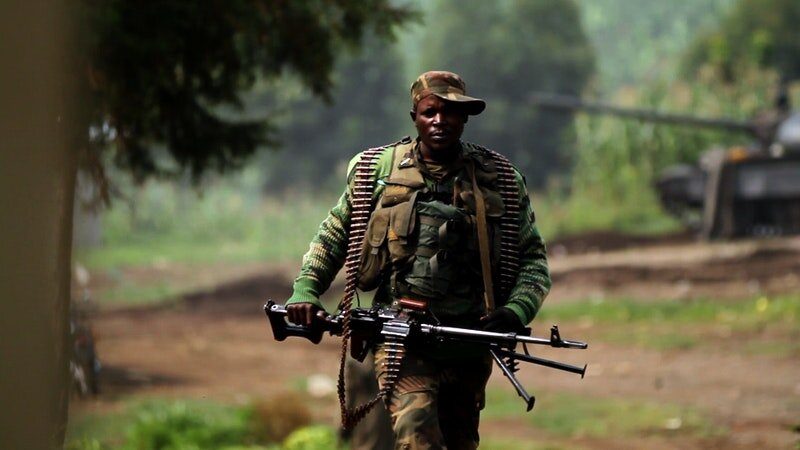
“If we are to adequately cover the targeted 30 percent of the land and 30 percent of the marine environment, we need approximately 14.8 million rangers,” says Chris Galliers, IRF. Current estimates? One to 1.5 million rangers. Picture: Virunga (2014)
Running out of time
2020 was a wake up call: according to a report from the UN on the state of nature, the world failed to meet a single target stemming the destruction of wildlife and life-sustaining ecosystems in the last decade, the second consecutive decade governments have failed to do so. Natural habitats continue to disappear, 1 million species remain threatened by extinction, and $500bn (£388bn) of environmentally damaging subsidies have not been eliminated. In fact, the international community did not fully achieve any of the 20 Aichi biodiversity targets agreed in Japan in 2010 to slow the loss of the natural world. “We are running out of having the luxury of setting targets without ever achieving them,” says Galliers, grimly.
Rangers’ role becomes even more crucial – if this were possible – as the world gets to grip with the causes of the pandemic. COVID-19 has demonstrated exactly what happens when humans drstroy and encroach into wildlife habits and when wildlife is sold in unregulated markets and consumed. To even begin to tackle these issues, says the Parks a report titled Impact of the COVID-19 Pandemic on Rangers and the Role of Rangers as a Planetary Health Service, published in the March 2021 edition of Parks Journal, requires the establishment of protected and conserved areas, their effective management and enforcement of regulations and building strong community relations.
All these actions rely heavily on rangers, on the frontline, protecting nature. Yet their numbers are almost comically low. “There’s currently a call for 30 percent of the Earth to be protected, up from the current 15.3 percent of land and 7 percent of the marine environment,” says Galliers. “This is good news. And, as the Waldron Report highlights, to achieve this, it will cost an estimated 0.16 of global GDP with the benefits outweighing those costs at a ratio of 5:1. But who is going to enable this and then effectively manage and protect these areas?” he ask. “The ranger [has been] almost absent in this macro planning. At the IUCN, recommended ranger density of 1 ranger per 1000ha (for extensive systems). If we are to adequately cover the targeted 30 percent of the land and 30 percent of the marine environment, we need a much larger ranger force with increased capabilities – approximately 14.8 million rangers.” Current estimates? One to 1.5 million rangers
Defending the defenders
A new set of targets, for the period between 2021 and 2030, is currently under negotiation. As the UN prepares to launch its Decade of Ecosystem Restoration, in which the planet’s astonishing wildlife occupies such crucial but still unrecognised roles, the work of rangers must be recognised – and the rangers themselves supported. The Parks Report recommends the following: raising the status of rangers, professionalising their roles, putting community investment at the heart of ranger work, making sure there are sufficient resources on the ground.
Galliers refers to another report, COVID-19 and Protected and Conserved Areas, published in June 2020: ‘At this critical time, we assert that effectively and equitably managed networks of well-connected protected and conserved areas1, by maintaining the ecological integrity of natural ecosystems, provide one of the most important ways in which to strengthen and repair the relationship between people and the natural systems on which they depend.’ “We need to promote the role of rangers in their entirety and the valued work that they conduct on behalf of humanity to secure a viable future for all of us,” he says. “The success of securing a species or ecosystem depends on having well supported, well trained ranger capacity to be effective.”
More information
For rangers on the frontline of poaching wars, daily trauma. National Geographic, 2014. https://www.nationalgeographic.com/animals/article/140627-congo-virunga-wildlife-rangers-elephants-rhinos-poaching
Virunga (2014). https://virungamovie.com/
Akashinga: The Braves Ones. National Geographic, 2020. https://films.nationalgeographic.com/akashinga
Find new ways to tread lightly
